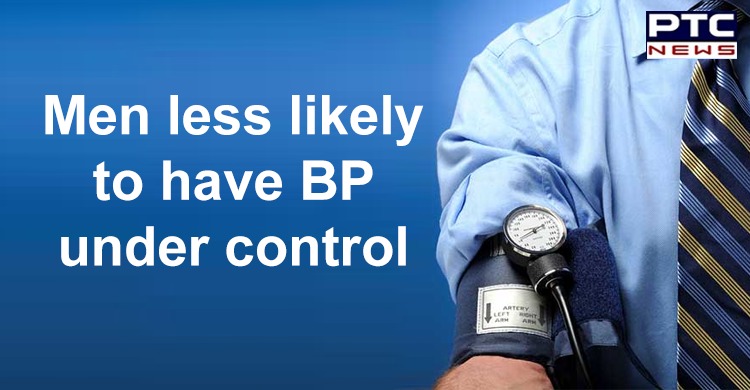
Men are less likely to have their blood pressure under control
Men in Punjab are two times more likely to develop hypertension or high blood pressure, and remain undetected as compared to women across the state. A study conducted by a team of doctors and medical researchers, from Postgraduate Institute of Medical Education Research (PGIMER), Department of Community Medicine and School of Public Health, underscores that one of the key factors associated with pre-hypertension is, male gender. It was also found that males, obese patients, those with a sedentary lifestyle, and patients with diabetes were more likely to have uncontrolled blood pressure.
 “I was unaware of my hypertension status until I had a fatal heart attack. My doctor asked me to go through a series of medical tests, like electrocardiogram (ECG), Treadmill Stress Test (TMT), and an echocardiogram (echo) and to my worry, everything indicated a serious problem”, said Krishna Dutt Sharma, a 75-year-old patient at PGIMER.
“I was unaware of my hypertension status until I had a fatal heart attack. My doctor asked me to go through a series of medical tests, like electrocardiogram (ECG), Treadmill Stress Test (TMT), and an echocardiogram (echo) and to my worry, everything indicated a serious problem”, said Krishna Dutt Sharma, a 75-year-old patient at PGIMER.
 According to National Family Health Survey (2015-16), a total of 17.4% of men had slightly above normal (Systolic 140-159 mm of Hg and/or Diastolic 90-99 mm of Hg) blood pressure against 10.5% women in the state.
“Men in Punjab are more prone to hypertension because despite being more physically active than females, they succumb to other vices such as tobacco (20%), drinking alcohol (26%), and low consumption of fruits and vegetables. Uncontrolled hypertension is also higher among males pointing towards probable treatment adherence issues, which are required to be explored further,” Dr. Gursimer Jeet, Research Associate, NCD Risk Factor Survey, Punjab.
Also Read | India is facing the result of a failed lockdown: Rahul Gandhi
The data also highlighted that 1.3% of men were hypertensive as compared to 0.7% women. Another key highlight of the survey was that men in rural areas are more affected by hypertension than in urban settings.
“The higher overall rates of diagnosis and blood pressure control among women probably result from contact with health services around childbearing and also consistent with a large body of evidence stating better health-seeking behaviour among women,” the study noted. However, in the case of men, there is an immediate need for a regular screening program or a mechanism of regular timely follow-up for patients with HTN and other non-communicable diseases in India.
-PTC News
According to National Family Health Survey (2015-16), a total of 17.4% of men had slightly above normal (Systolic 140-159 mm of Hg and/or Diastolic 90-99 mm of Hg) blood pressure against 10.5% women in the state.
“Men in Punjab are more prone to hypertension because despite being more physically active than females, they succumb to other vices such as tobacco (20%), drinking alcohol (26%), and low consumption of fruits and vegetables. Uncontrolled hypertension is also higher among males pointing towards probable treatment adherence issues, which are required to be explored further,” Dr. Gursimer Jeet, Research Associate, NCD Risk Factor Survey, Punjab.
Also Read | India is facing the result of a failed lockdown: Rahul Gandhi
The data also highlighted that 1.3% of men were hypertensive as compared to 0.7% women. Another key highlight of the survey was that men in rural areas are more affected by hypertension than in urban settings.
“The higher overall rates of diagnosis and blood pressure control among women probably result from contact with health services around childbearing and also consistent with a large body of evidence stating better health-seeking behaviour among women,” the study noted. However, in the case of men, there is an immediate need for a regular screening program or a mechanism of regular timely follow-up for patients with HTN and other non-communicable diseases in India.
-PTC News
